Time to Sink Zinc: Alternative Metals for Sacrificial Anodes
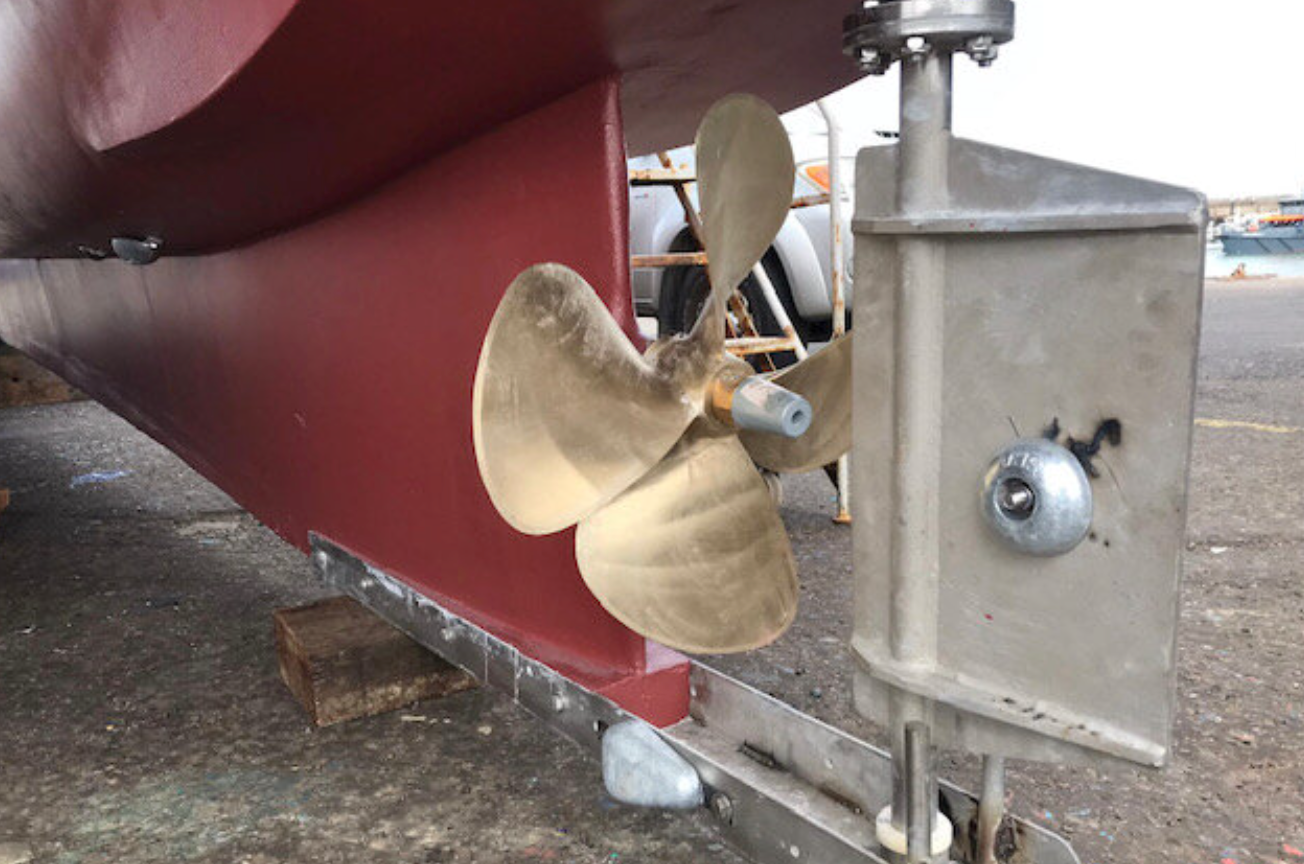
Most of us don’t give a second thought to our sacrificial anodes — those knobs of raw metal found on outdrives, shafts, rudders, and other metal components on and under the boat. We know that the anodes somehow react in the water to protect those important metal bits from corroding and we know that they dissolve in the course of doing their job and need to be replaced. Beyond that, no one gives them a second thought.
Maybe We Should
Anodes are pretty cool devices. Metal corrodes in water because of naturally occurring electro-chemical reactions. Anodes are made from metals that have a particularly attractive electro-chemical voltage range so these corrosive reactions tend to concentrate on the anode while ignoring other adjacent metal parts. It’s a bit like catering a kid’s birthday party by serving cake and broccoli at the same time — the cake gets devoured while the broccoli escapes untouched. It’s a simple approach that works equally well on small boats, large yachts, commercial ships and shoreline installations such as docks and lock gates.
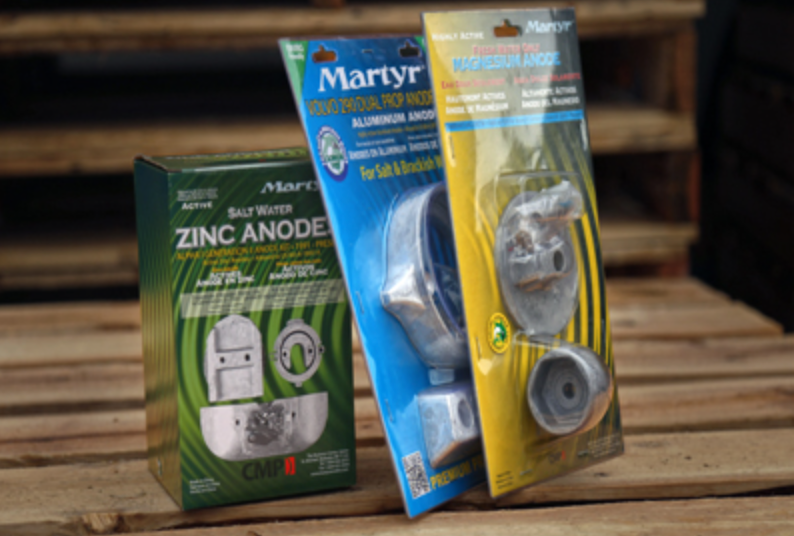
More than Zinc
Anodes have traditionally been made of zinc — to the point they’re pretty well known universally as “zincs” rather than by their proper name. While zinc is an effective anode material and small amounts of zinc are essential for human health, in higher concentrations it can cause real problems.
Prolonged exposure to zinc has been found to be highly toxic to plants, invertebrates, and fish, for example. Worse still, zinc anodes typically include some amount of cadmium, which has been associated with serious illnesses including kidney disease, atherosclerosis, hypertension, and cardiovascular diseases. Further, there is growing concern that exposure to cadmium may be linked to immune-system deficiencies. Recent studies have revealed a significant correlation between cadmium exposure and the occurrence of disease in human populations.
Such findings have inevitably raised concerns about the continued use of zinc anodes in marine environments. Bans on the use of zinc anodes have been proposed in California and Maryland after studies identified high levels of the element in environments near large marinas.
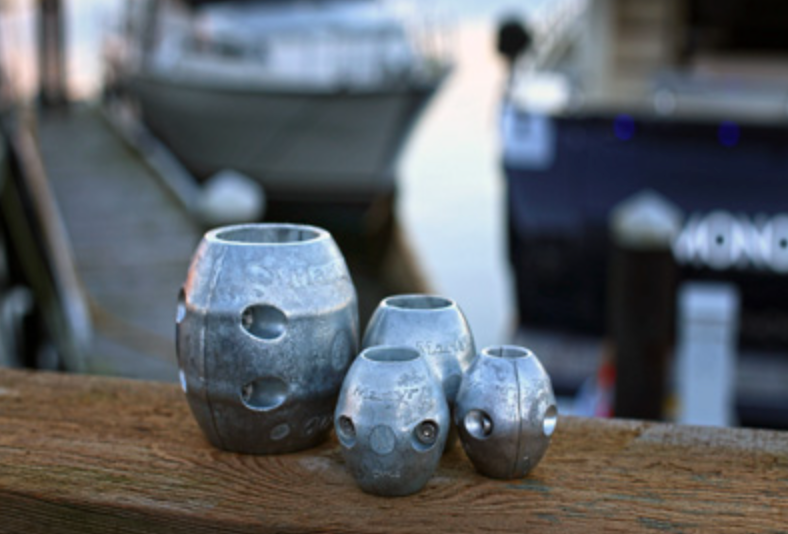
Alternative Metals
Fortunately, zinc isn’t the only game in town when it comes to protecting our boats. Non-toxic alternatives exist, starting with aluminum.
Aluminum anodes have numerous advantages over zinc, starting with being far more effective. In fact, aluminum’s superiority to zinc as an anode material is so overwhelming that it has completely displaced zinc as the number one choice of engine manufacturers worldwide.
The greatest benefit to aluminum over traditional zinc is that modern alloys let aluminum anodes to do a better job of reacting in the water to focus corrosion on themselves. Beyond that, aluminum anodes last up to 50 percent longer than zinc versions of comparable size. Aluminum is also much lighter than zinc, and most importantly, it’s non-toxic. There isn’t a down side, which is why aluminum anodes are considered to be a premium product compared to the old-style zincs.
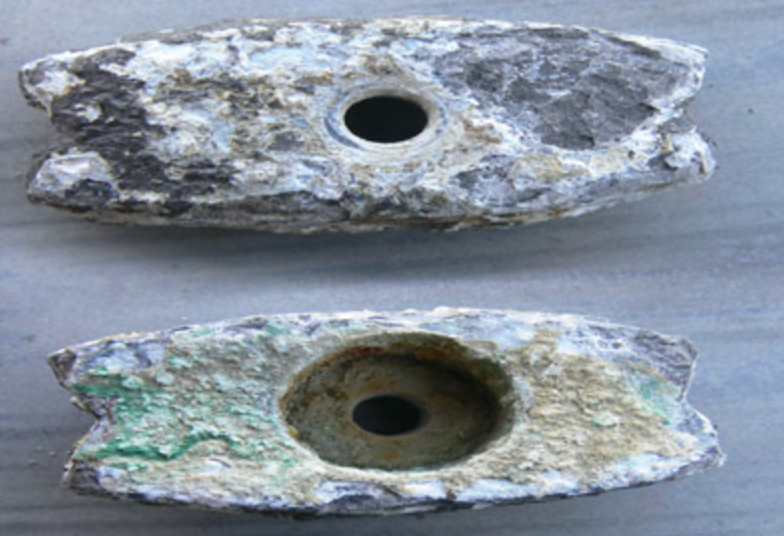
Ironically, the greater lifespan of aluminum anodes has led to sales resistance when boaters come to buy replacements. Aluminum doesn’t erode as quickly as zinc, so customers look at the anode and think it isn’t working.
But not all aluminum anodes are the same. The best anodes are made from virgin aluminum or recycled high-quality alloys that might have been originally used in precision equipment or as high voltage power lines.
Some manufacturers repurpose premium alloy, but others melt-down low-grade scrap. Companies allegedly buy old used-up anodes from boatyards, melt them down and sell them as new products. Do some research to find an anode manufacturer that adheres to ISO 9001 Quality Management System and tests its anodes to meet stringent specifications.
Another material becoming more popular for anodes is magnesium because if provides a more-effective option for boats that run in fresh water. Magnesium offers an active electro-chemical voltage range, giving it a substantial protection edge that surpasses that of zinc and even aluminum.
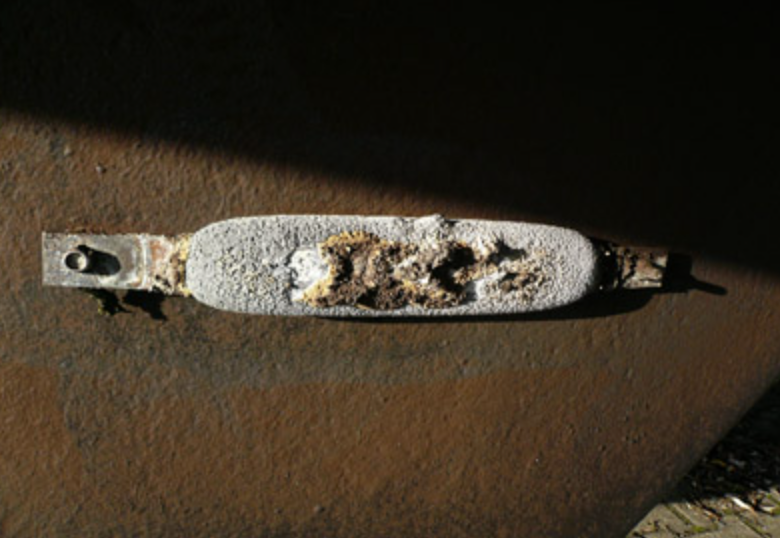
Getting the Word Out
Aluminum and magnesium out-perform traditional zinc anodes and they’re less expensive. In short, non-toxic alternatives work better, last longer and cost less than zinc. Why on earth do we keep using the toxic stuff?
Unfortunately, zinc continues to represent about 60 percent of some companies’ total anode sales. To help change that, manufacturers have come up with new packaging that better communicates the advantages of aluminum and magnesium alternatives. They’re also working with their distribution network to help get the word out.